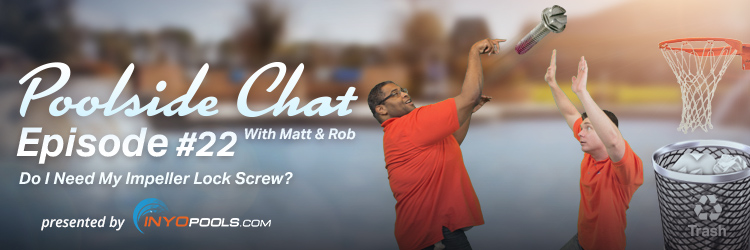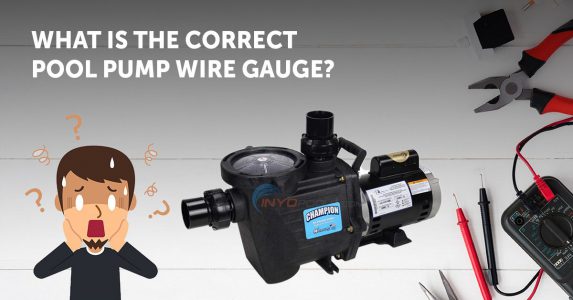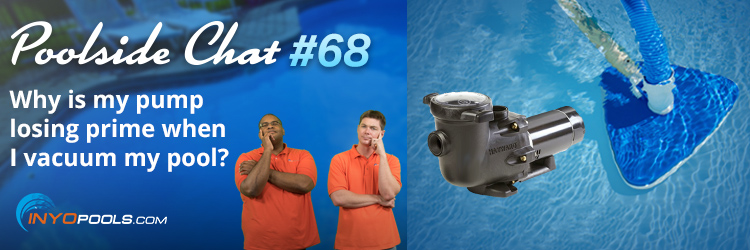- Does my pool pump actually need the impeller lock screw?
Now here’s your hosts – Matt and Rob.
“Do I need an impeller lock screw to secure the pool pump impeller?
-Douglass in Colorado Springs, CO
Well, we get this question all the time because most new motors do not have the internal threads for a lock screw. So, when pool owners get a motor, they’re a little concerned that their impeller lock screw has nowhere to go. But, we’ve discussed this with pool pump manufacturers and they’ve advised us that the impeller lock screw is no longer necessary for most pump designs because the new impellers will not dislodge for the motor shaft. So, toss the lock screw.
Well, there are some exceptions (a more in-depth explanation) because there are some old pumps that still need to use a keyed shaft as a joiner between the impeller and motor. You’d have to check to see when you’re replacing your impeller or pump motor to make sure you have the external threaded motor shaft. Make certain do not need that impeller lock screw before you throw it away.
But if you do have the outer threads, or the external threads on the shaft or the motor, you can toss that impeller screw because it’s a redundancy. If you want it in there, you can have it in there, it’s not going to affect anything. It’s not going to make your pump, pump more or less water. It’s kind of a safeguard.











When leaving out the lock screw, shouldn’t something be done to close the hole in the center of the impeller?
The threaded interface between the shaft and the impeller would not be watertight, leaving a pathway for water and/or air to bypass the “shaft seal” (which technically only seals the impeller to the seal plate) thus creating a potential for a small leak.
If that were not the case, then the lock screw would not have its own rubber seal.
For specific context, I am currently rebuilding my Pentair Whisperflo WFE-4 with new motor bearings and all new seals, and I discovered that the screw was apparently left out during a previous rebuild (previous homeowner).
I agree that the screw is likely not needed to “lock” the impeller, but I do wonder if a small leak there could be the reason why my front bearing went out. Obviously, it could have just been a worn shaft seal, but it’s worth considering.
Having repaired thousands of pumps, I can assure you that the lock screw is needed as very cheap insurance. Pump motors are designed to rotate in one direction, but they can and do fail and start in the wrong direction. They can, then, unscrew the impeller from the motor shaft. The results aren’t pretty.
If you are speaking about three phase commercial pumps, then yes they are reversible. The older keyed shaft motors were sometimes reversible as well. But those are gone, long gone. The new residential pool pump motors are not reversible, unless you do some major re-wiring of the motor’s guts to make something go awry. Impeller screws are not necessary for the residential installations we mention in the post.